Ingeniero agrónomo Magíster en Agronegocios, con capacidades para desarrollar y liderar, desde la experiencia técnica y docente, procesos de investigación, estructuración y formulación de proyectos de producción propios de diferentes cadenas agroalimentarias, con dominio óptimo de las variables tecnológicas, productivas, gestionarías y ambientales características de los nuevos escenarios, siempre fundamentada en un amplio compromiso con el desarrollo agrícola sostenible.
Cuento con experiencia en el sector productivo en la parte técnica y administrativa, además me he desempeñado como docente universitario bajo la modalidad presencial y virtual en el área de mi formación, con énfasis la línea económico administrativa del sector agropecuario. De igual forma, he participado en formulación dirección y evaluación de planes de negocios y estudios de factibilidad para la creación de empresas agropecuarias. Actualmente participo en grupos y trabajos de investigación en áreas relacionadas con la gestión empresarial, mercadeo agropecuario, desarrollo rural, seguridad alimentaria y agronegocios.

